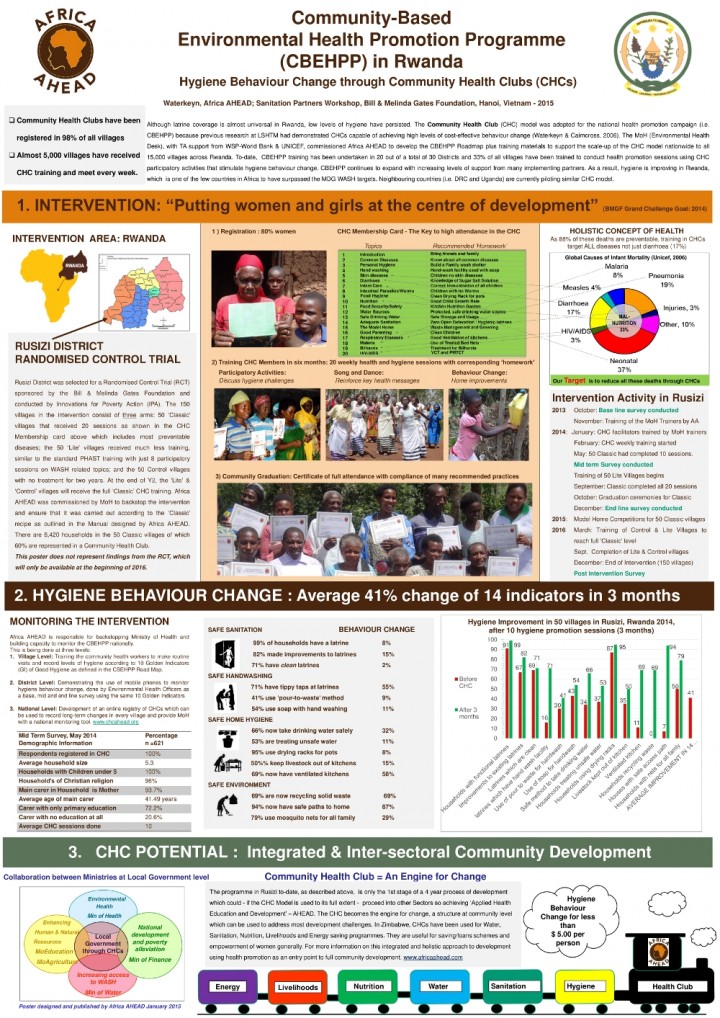Community hygiene clubs - Community Based Environmental Health Promotion Programme Various documents on results from research grant Waterkeyn, J., Waterkeyn, A. (2015)
Bibliographic information
Waterkeyn, J., Waterkeyn, A. (2015). Community hygiene clubs - Community Based Environmental Health Promotion Programme Various documents on results from research grant Rwanda Ministry of Health, Africa AHEAD
Filter / Tags
Sustainable WASH in institutions and gender equality (WG7)Behaviour change (WG13)RuralPractitionersEnglish
External links
Further information on discussion forum
Downloads
1 - Poster about this project at FSM3 Conference in Hanoi (January 2015)
Type: application/pdf
Size: 1.32 MB

